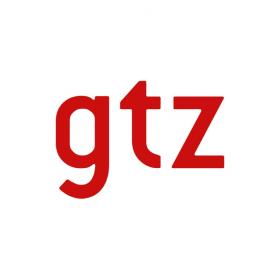

DRI of Montenegro invites SAIs from the ECA region to a regional seminar
Representatives from SAIs from the ECA region came together from the 22 to 24 October in Pržno, Montenegro for a regional seminar on “Human Resource Management in Supreme Audit Institutions” to discuss the role of human resources in public external audit. Tasked with the external audit of public finances and government performance, Supreme Audit Institutions (SAI) can only be as good as the quality of the staff they employ. Conscious of this pivotal role played by human resources in public external audit, participants from the SAIs of Albania, Armenia, Belarus, Croatia, Georgia, Kyrgyz, Moldavia, Montenegro, Serbia and Slovenia exchanged ideas and experiences on staff management and development. Further inputs were given by SAI and Human Resource Management (HRM) experts from the German Federal Court of Audit, the Riksrevisionen of Sweden and the CEF. The seminar was hosted by the Državna Revizorska Institucija (DRI) of Montenegro and organised by the German Technical Cooperation (GTZ) GmbH.
Auditors, Audit Institutions and the management of change
The seminar focused on three issues in particular. First, the unique and complex qualifications SAIs demand from their Auditors. Instruments for assessing, recruiting and continuously training SAI staff in light of these requirements were presented from SAIs in the Region and from Dr. Lars Friege from the German Federal Court of Audit. Second, the impacts and implications human resources bring for SAIs as organisations. SAIs rely on the performance of their knowledge workers to fulfil their role in the governance of the public sector and the country in general. Putting HRM into its context, Mr. Lage Olofsson from the Riksrevisionen of Sweden outlined a framework linking staff performance to the criteria of a well performing SAI as outlined by the Lima Declaration of 1977, whose principles are shared by SAIs around the world. Third, the contextual requirements for both Auditors and SAIs operating in a complex, changing environment were emphasised by Dr. Igor Šoltes, President from the Court of Audit of Slovenia, and Mrs. Zdenka Vidovič of the CEF in a shared presentation on knowledge management. They urged SAIs to embrace both the fluid nature of their task and the human qualities of their auditors in their day-to-day work. By this, SAIs themselves become agents of change for better financial governance as noted by GTZ senior public governance expert Roland von Frankenhorst in closing of the seminar.
Peer learning to develop capacities of SAIs for Human Resource Management
The complex picture of HRM needs and opportunities of SAIs that was drawn in Pržno served as a basis to explore options for regional exchange, the sharing of expertise and peer learning among the SAIs of the ECA countries. In his opening speech, Mr. Miroslav Ivanisevic, President of the DRI of Montenegro, set the main theme for the seminar by underlining the value of pooling the experience and knowledge from the region through an International Education Centre that would serve the diverse needs of SAIs in training their auditing and management staff. The advantages of combining the methodological and management know-how from different SAIs for a comprehensive, quality education of auditors were laid out in further detailed by the DRI during the seminar. Mr. Nikola Vikićević, head of the Budget CoP, laid out the good experiences by PEMPAL had in the last years in creating options for regional peer learning and benchmarking of performances for on-the-job challenges of experts from different institutions of public finance. Given the complex and specific challenges SAIs face, the open exchange among professional peers from the region offers promising opportunities to improve external audit capacities in the coming years.











